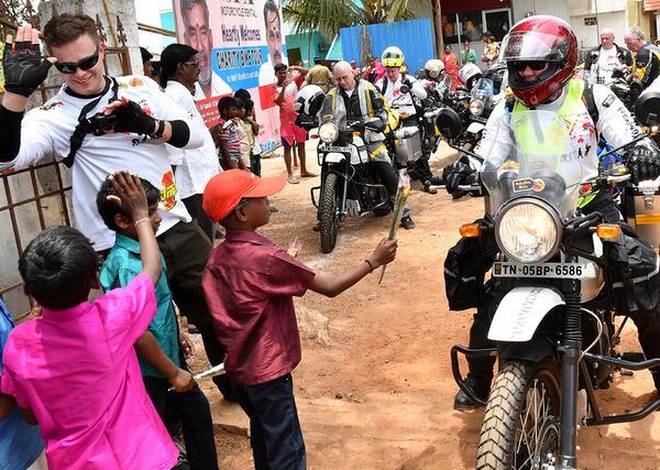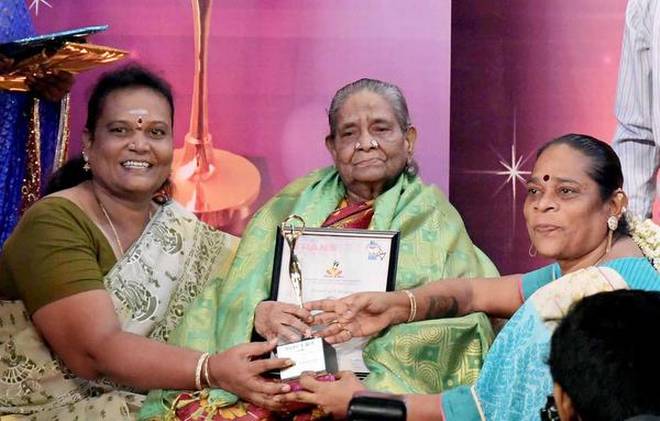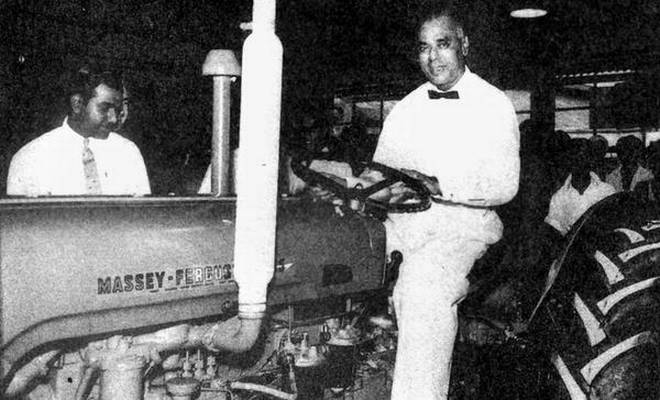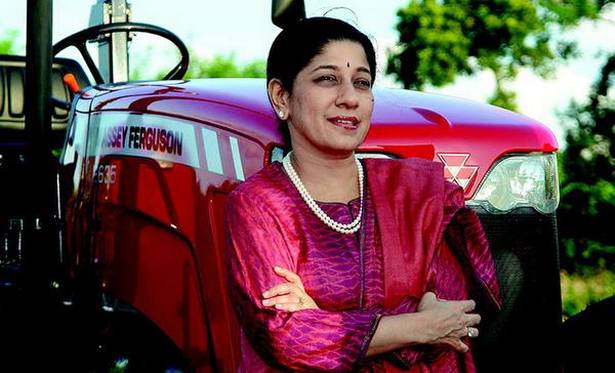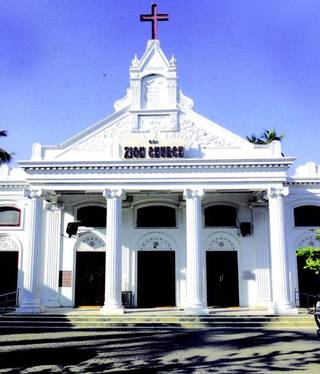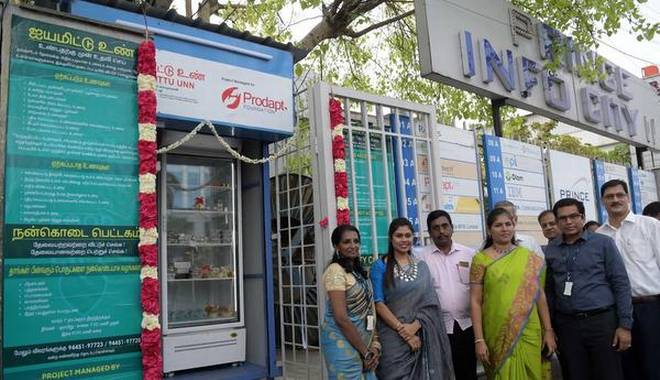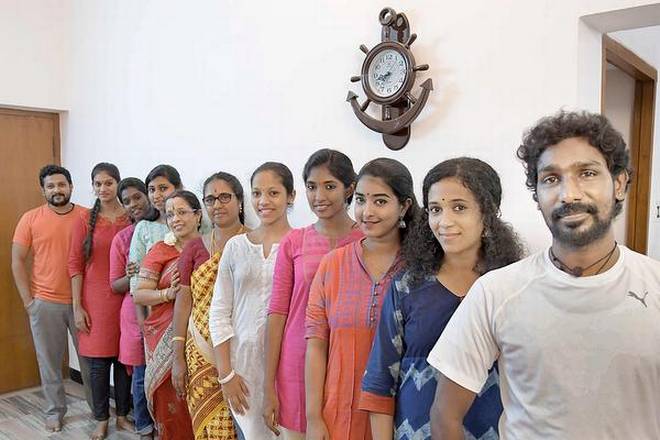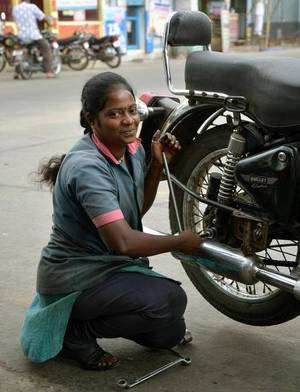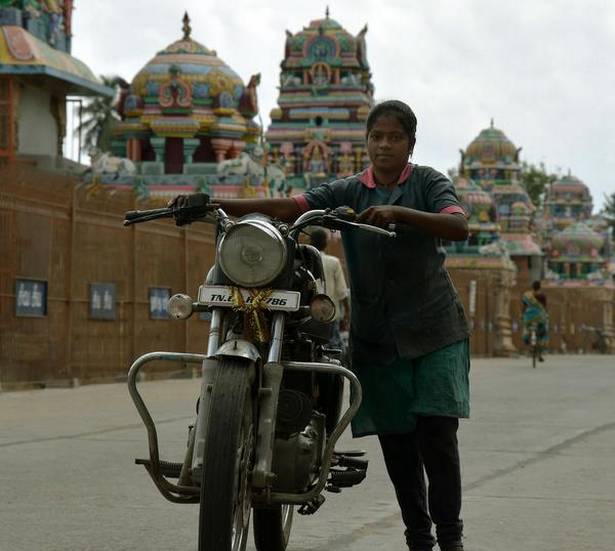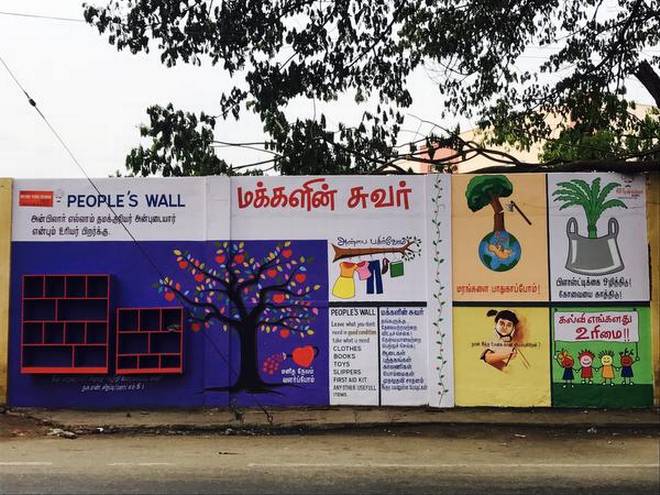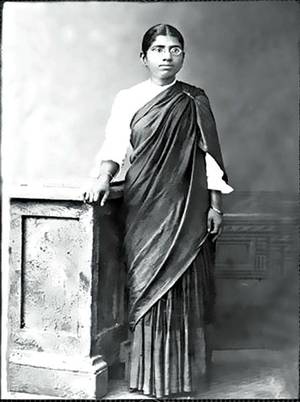
Dr. Muthulakshmi Reddy fought for women against many wrong things, including the devadasi system
World Dance Day brings the focus back on “The dancing girl of Mohenjo daro.” This 10.8 cm long bronze statue (see below)was found in 1926 from a broken down house on the ‘ninth lane’ in Mohenjo-daro. The ‘pert liveliness’ of the minute figure opened up a debate on the antiquity of arts in India. In a language of creative expression, archaeologists reshaped and extended the assumption about her being the dancing girl. She is in a Tribhangi they said and “beats time to the music with her legs and feet…”
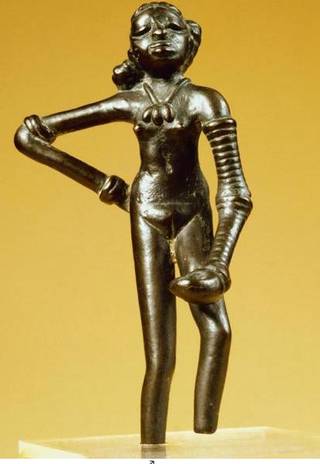
But she is actually standing straight. Only one arm is adorned with bangles and she is holding something in her left hand. Naman Ahuja, the historian, says, “Look at the way she is standing. Look at her confidence. One arm on hip. Head thrown back. The way her hand is sculpted, there might have been a spear in her hand. Is she a warrior figure? Could she be a soldier rather than a dancing girl?”
Focus on the dancing girl
A recent discussion has brought focus on the dancing girl of Mohenjo daro and at the centre is the Devadasi, a system prevalent in the 1920s and abolished. This brings us to another dancing girl — Edgar Degas’s ground-breaking statuette of a young ballerina that caused a sensation at the 1881 impressionist exhibition. Degas was a keen observer and wry but sympathetic chronicler of the daily life of dancers, depicting their world off-stage, at rehearsal or in the wings. Degas’s Little Dancer showcases this world of gaslight and struggle. “It is the image of a sickly gawky adolescent, who is being made to do something she doesn’t totally want to do,” said the critic, Tim Marlow.
This thought brings us to Dr. Muthulakshmi Reddy, who fought against the dedication of young girls as Devadasis and Rukmini Devi Arundale, who crusaded against exclusivity.
Muthulakshmi, daughter of a Devadasi Chandrammal married to Narayanaswamy, the principal of Maharaja’s College in Pudukkottai, became the first girl student of the college. Also, she was the first Indian girl student in the Department of Surgery at the Madras Medical College. When she was admitted to Maharaja’s High School, parents of boys threatened to withdraw their children from the school. Her father had been ostracised by his family for marrying a Devadasi and Muthulakshmi became closer to her maternal relatives and saw the situation first hand. After she became a doctor, among the first things Muthulakshmi began to fight against was the system of wet nursing, where women of the upper class got Dalit women to breast feed their babies. She fought to raise the age of marriage for girls, women’s right to property and for choice in the matter of education and career.
It was in 1893 that the Madras Hindu Reform Association sent appeals to put an end to the practice of dances performed at private and public functions in which the British officials also participated. In 1900, M. Ramachandran, secretary of Arya Mission, Kanchipuram, openly protested against the Devadasi system by publishing articles and distributing pamphlets. In 1913, a bill to prevent dedication of girls under 16 years of age was introduced but the bill just dropped out.
In 1927, V.R. Pantulu made a resolution in the Council of State to prohibit dedication of girls. In the same year, Muthulakshmi Reddy was nominated to the Madras Presidency Council and was chosen as the first woman deputy president. She organised several seminars and meetings all over the Madras presidency and interviewed several hundred Devadasis. The Isai Vellalar Sangam in Thanjavur and Mayavaram met in support of the bill. Cochin Devadasis took out a procession in support of the bill. But the George Town Devadasis lead by Duraikannu Ammal and Bengaluru Nagarathnamma opposed the bill.
The bill was dormant after Muthulakshmi Reddy resigned from the Council in 1930 protesting Mahatma Gandhi’s arrest after the Salt March. Then the World War intervened. It was only in December 1947 that the Madras Devadasi (Prevention of Dedication) bill was passed in the Madras Legislative Assembly.
While all the debate was going on, two young girls approached Dr. Muthulakshmi Reddy and asked her what alternative she had for them. They were running away from being dedicated as Devadasis. She took them into her house, tried putting them in hostels and schools but no one would take them. She decided to start Avvai Home hostel and school and offered them anonymity and choice in the matter.
Coincidentally, in 1936, when Dr. Muthulakshmi Reddy started Avvai Home, in the Theosophical Society, yet another disciple of Annie Besant, Rukmini Devi Arundale, began to learn a dance she had a chance to encounter and opened it up for all of us to savour.
source: http://www.thehindu.com / The Hindu / Home> Entertainment> Dance / by V.R. Devika / April 26th, 2018
